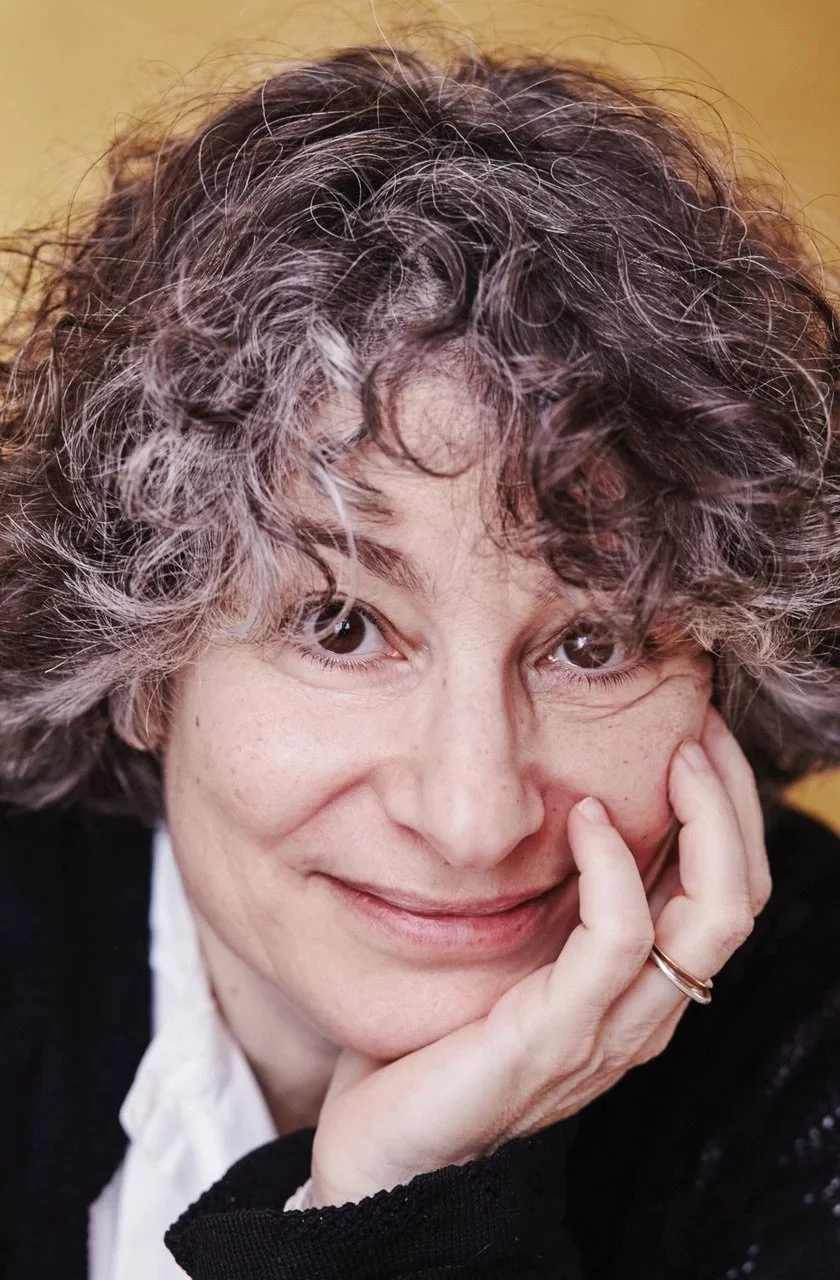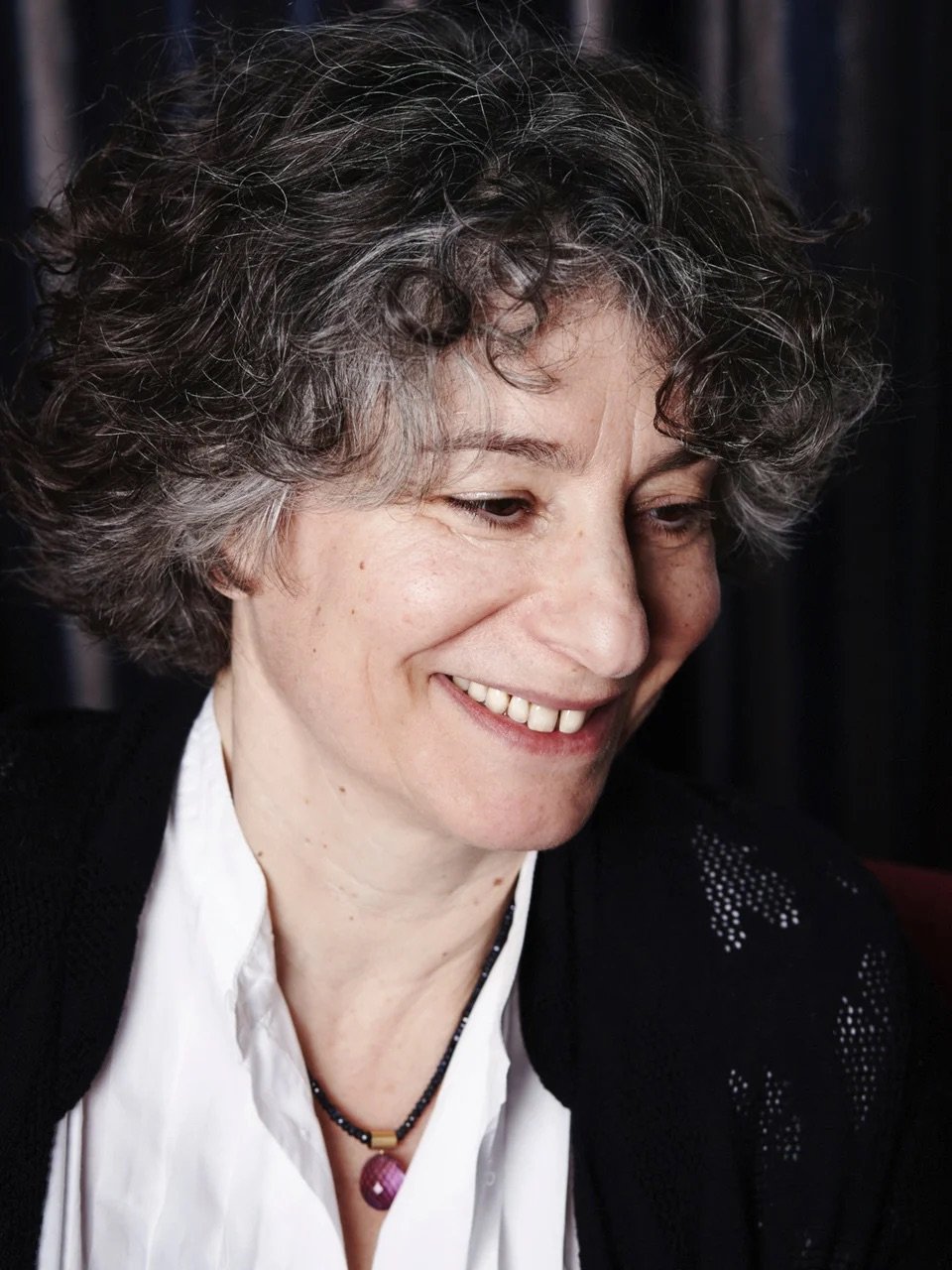Sonia Simmenauer – changing leadership roles in the music industry
In her latest leadership role as the newly elected president of the BDKV – Germany’s Association of the Concert and Event Industry – Sonia Simmenauer now represents the various interests of Germany’s extensive network of service professionals and businesses in the artist support field.
Photo Credit: Lennart Rühle.
Bringing along her tremendous experience from the classical sector, Simmenauer carries an important voice for the genre but is now anticipating her new position, entailing a much broader scope of the music landscape since the professional association of the BDKV encompasses all branches and genres from around 500 German concert and event industry companies. Moreover, with their significant stake within Germany's robust cultural sector, these branches hold an estimated market share of €6 billion annually.
In 2019, the BDKV emerged through the fusion of the Federal Association of the Event Industry (BDV) and the Association of German Concert Producers (VDKD) as a mighty representative of the industry’s many branches, creating a unique platform for exchange, guidance, and support of the industry’s many existing initiatives, many of which reach beyond Germany’s borders and the European Union, reaching global markets.
As the first female holding her position, Simmenauer is used to wearing multiple hats as an impresaria, entrepreneur, educator, and writer. While she intends to continue to look after some of her artist clients, she has recently given the reigns of the agency she founded four decades ago over to her son, Arnold Simmenauer. This has freed up her time and the necessary headspace to delve into the multitude of new tasks and responsibilities she is now excited to address fully.
“I am glad to have been elected together with a real team, previous board members who, like me, decided to follow this path, and I am eager to see what questions need to be addressed in the process and where these will lead me,” she says.
The newly designed and downsized board of directors also includes deputy president Christian Doll (C² Concerts), Daniel Domdey (d2mberlin, Die Wühlmäuse), Christian Gerlach (Neuland Concerts), Verena Krämer (wahn.witty bramer.krämer GbR, kulturkraemer), Michaela Russ (SKS Erwin Russ) and Stephan Thanscheidt (FKP Scorpio Konzertproduktionen).
The photo shows from left to right: Michaela Russ, Daniel Domdey, Johannes Everke, BDKV President Sonia Simmenauer, Stephan Thanscheidt, Verena Krämer, Vice President Christian Doll, and Christian Gerlach.Photo Credit: Britta Herrström
While the music industry is going through a global post-pandemic recovery phase, the existential crisis has amplified already visible issues impacting the industry’s fabric, whose clear signs have been previously ignored or buried.
“We are witnessing the increasing downfall of the star system, the age of the grand Maestri, for example, nears its end, and the impact of the rise of the streaming platforms that influence how we listen to music. We must fill concert halls with returning audiences supporting artists and presenters long-term. How does this impact our choices, programs, and artists? How do we handle these changes? All along, we underestimated the impact of it all, and while streaming will never replace live events, it certainly already impacts the recording industry tremendously,” she comments.
Seeking to optimize the legal foundation for the industry’s constantly changing framework, the BDKV provides access to the policy-making parties, members of the Bundestag, ministries, and state governments, communicating the interests of the association’s many stakeholders. Its influence is represented through its affiliations and memberships or advisory councils of many of the industry’s moving parts, as varied as Germany’s artists' social fund, the subsidy program Initiative Musik, The Live Entertainment Award Committee, the German Music Council, and the European Live Music Association (ELMA) . Through its subsidiary GVWR, the BDKV is also a part of the regulating authority of licensing recordings from events of GVWR members to facilitate publishing on audio and audiovisual media devices and in online selections for streaming and download platforms.
“We are faced with a general climate of change, not only within the global trends of the post-pandemic industry but also concerning a generational shift, which concerns artist management as much as it does audience development. Although my generation sort of hinges between the strong traditions of our predecessors, many of whom have aged in their positions, and the future of the upcoming young professionals with a very different approach and vision,” she explains and continues,” my generation can still tell the stories of music as an integral part of live culture, built on quality, which is increasingly challenged by the growth of a digitalized culture. The same goes for language, by the way. The only compatible language in a global market has become English, which, as a result, has cut down on music delivered in all other languages,” she remarks. “Even in pop culture, a German pop song cannot make the charts, for example. Consequently, German singers wanting to reach out internationally only record in English….”
With a focus on chamber music, the U.S.-born Simmenauer, who grew up in France, built her Impreseriat Simmenauerin 1989 in Hamburg, moving it to Berlin in 2009. Throughout the years, she has continued to discover, serve, and accompany the careers of some of the most distinguished performing artists and built an acclaimed roster of international string quartets that includes the Alban Berg, Guarneri, Arditti, Tokyo, Artemis, Ebene, Belcea, Jerusalem, Schumann, Modigliani String Quartet, and Brooklyn Rider.
A list of handpicked soloists and conductors followed her broad range of ensembles, among them violinist Gideon Kremer, Isabelle Faust, and Vadim Gluzman, cellist Alisa Weilerstein, pianist/composer/conductor Lera Auerbach, singer Georg Nigl, mandolinist Avi Avital, pianists Piotr Anderszewski, and Alexander Melnikov; one of the latest additions is the young pianist/composer Nicholas Namoradze, winner of the last Honens International Piano Competition.
“The focus has shifted to musicians crossing boundaries and expanding the view on music and society, including the style of performance and composition, which implies some experimentation. And by this expansion of genres, I do not mean what’s usually described as “crossover,” a conglomerate of mixes, but rather building on the principles of its art form. Making classical more accessible must address the presence of a more comprehensive and diverse culture rather than trying to dumb down the genre. This will require discussions about how to open more discourse with the audience, and we need to ask who our audience is and how that is reflected in the means of our presentation,” she says.
“These conversations must reach across the table, examining how societal thinking and the search for discoveries in the arts can align with science and new technologies. We must communicate in roundtables and Think Tanks, building on the past without negating it. Classical music should not remain in a box, and musicians should not have to decide to perform exclusively within one genre; the verdict of separation should not apply to different styles of music, just good or bad music,” she emphasizes.
As a writer and educator, she has often described an essential quality she is looking for in an artist she aspires to work with. It is an “element of surprise,” which, through the artist’s – as well as her own - imagination, ignites her fascination with an artist’s musical journey that can transform audiences while staying deeply grounded in the art form. Her early fervor for string quartets can be described as visionary at a time when the profoundly immersive and intimate art form, often reserved for the composer’s most daring and experimentational work, was rather a side product within chamber music’s different instrumental ensemble groupings and a neglected species in a market that demanded a more varied, orchestral sound and star soloists.
Thankfully, her many years of valuable experiences collected through working directly with so many artists have given her insights into both sides of the industry, that of the artists and that of the presenters, making her role a perfect fit.
Photo Credit: Lennart Rühle
When it comes to developing her artists’ careers, though, she is an expert, and the insights she shares help put things into perspective: “We must build communal stages with curious audiences. Artists’ fans are global, but the presenter is local; we will only win if we can connect both ingredients that make it possible to partake live – and virtually. We can have it both ways, but both experiences must be treated differently. The social practice for both is an entirely different one; the live experience will never be replaced: I encounter people before I enter, I tolerate someone breathing next to me, the artist sweats on stage, I share the excitement in the room, clapping, and I am going to have dinner after the concert. If it only happens on the internet, subtle qualities and social interaction get lost. Simultaneously, young artists need to experience diverse encounters with the audience. Nothing forges relationships between artist and audience and shapes the stage presence of an artist like the intimacy that projects performing from a small stage, a cafe, or a church. I am not sure we do them any favors by starting them out in a big concert hall,” she says.
The unique role of the German BDKV and its work has to be evaluated against the backdrop of its specific locality. Unlike in the USA, for example, culture in Germany is well regulated by its cultural policy. There is a “Permanent Secretary of Culture and Media,” and budgets are planned on the governmental, state, and township levels.
“The BDKV connects music and business, so we must ask how much influence politics should have in the arts and how that influences our culture. Who are the politicians, and how involved and informed are they about all the facets of the sector? In the past, many politicians had some musical training; they used to attend concert performances; for the most part, this has changed. While this indicates an almost imperceptible process of disconnect, we need to inform our members about the legal questions of the system and its administrative processes, from the social welfare of our artists to the rights of our composers. It is our job to build bridges between the presenters, coordinate our member’s input, and empower them to lead audiences to their best possible experience, asking the right questions,” she says.
She describes her expectations for her new role: “In a representative position, one can always choose to do the bare minimum or give one’s best. I plan to do the latter. I think it’s best to think of all the challenges ahead as an opportunity. We deal with a whole network substantiated by an eclectic mix ranging from small chamber music producers to huge Rock group presenters, so we must appeal to the mutual passion for music that connects us. There is plenty to address, and we have many themes on the agenda, some of which will need much fantasy, but trying is essential. The only possible direction is forward – and precisely that makes this such an exciting beginning of a new journey.”


